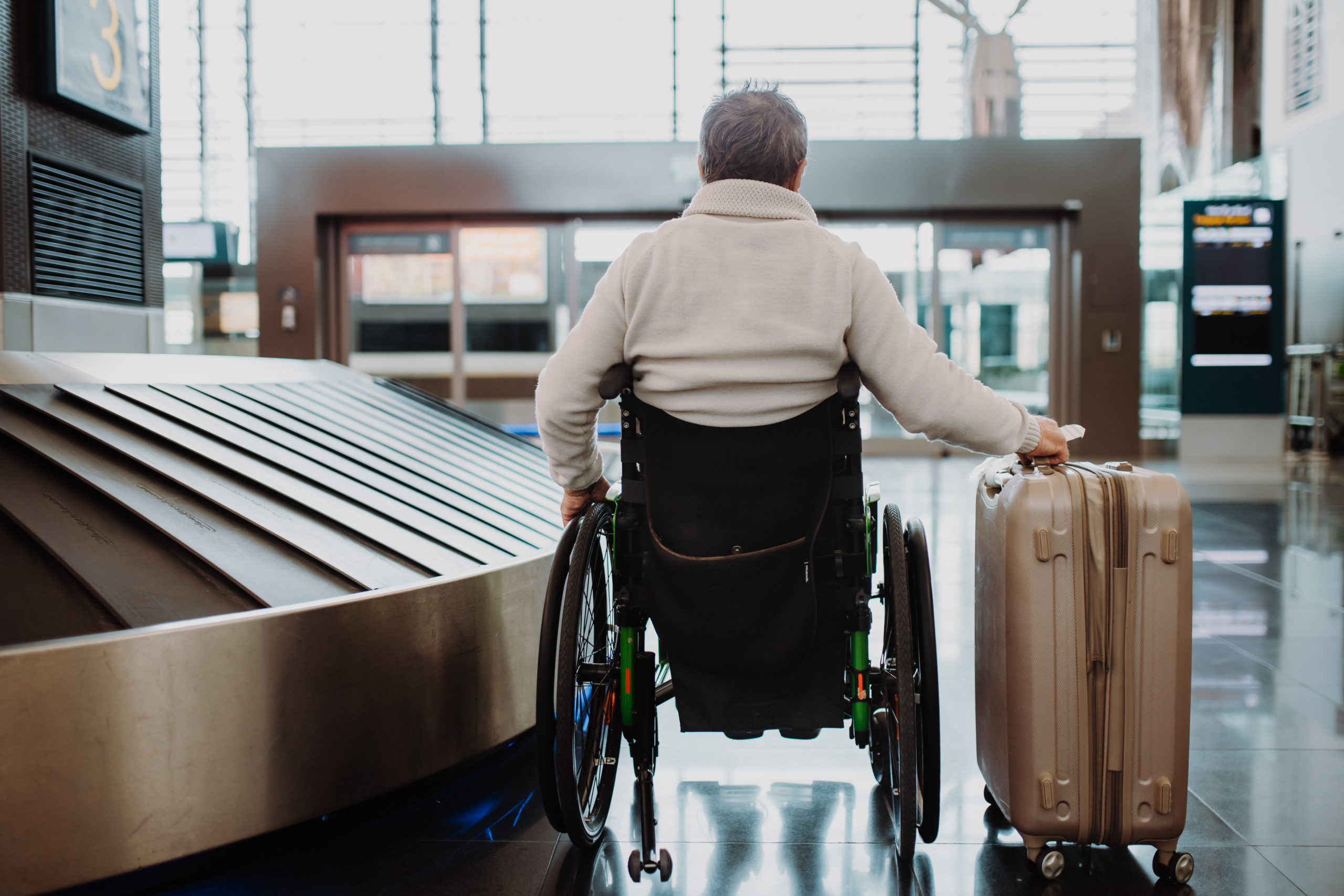In July 2021, Engracia Figueroa’s power wheelchair–a $30,000 custom device—was critically damaged in the belly of a commercial plane. After the flight, Figueroa was left to wait in a standard transport wheelchair at the airport for nearly five hours, noting her hunger and pain in live videos she posted to Facebook.
Figueroa, who was disabled following a train accident 30 years prior, was provided with a temporary and ill-fitting loaner wheelchair to use in the coming months, as United Airlines fought against the federally mandated responsibility to pay for full repairs or replacement. In Facebook videos, Figueroa described the incident as life ruining.
In the wheelchair Figueroa was left to use, an old pressure ulcer opened, leading to an infection that spread through her body, ultimately causing her death just three months after her wheelchair had been destroyed due to improper cargo storage.
Two researchers at the UK Human Development Institute (HDI), Dr. Walt Bower and Julie Pfeiffer, have been paying attention to stories like Figueroa’s, and they are now laying the groundwork for academic research on airline accessibility for individuals who use wheelchairs.
“Please do not allow this to happen to anyone else again. Let’s get together and get these airlines to stop doing this to people with disabilities,” Figueroa wrote in a Facebook post following the initial incident.
Revealing the prevalence of the issue, Bower and Pfeiffer note that disability-related complaints related to air travel have more than doubled in the past decade, yet little to no formal academic research has been conducted on the topic in the U.S.
Pfeiffer, who came to HDI with this specific research interest, is a graduate research assistant with a background in physical therapy. She used to work with individuals who were new to using a wheelchair. One facility she worked in had a partnership with the local airport. Using a mock airplane setup, Pfeiffer helped her patients practice transfers from their wheelchairs to airplane seats. She educated her patients on how to navigate an airport in a wheelchair, passing along tips and tricks she had learned from other wheelchair users.
“I continued to work with individuals who used wheelchairs and just started hearing a lot of stories from my patients about what it was like for them trying to travel–trying to fly on a plane, specifically–as a wheelchair user and having their wheelchair damaged, how they were treated by airline personnel, how they talked to them,” Pfeiffer said.
Joe Cowan, a member of HDI’s Consumer Advisory Council, loves to travel for conferences and events. His favorite place he’s traveled to is Florida.
“It was just the atmosphere, you know? It was just nice,” he said.
Cowan hopes the outcome of Bower’s and Pfeiffer’s research will lead to better training for airport staff. He sees lack of training and awareness by airline staff as the biggest reason individuals who use wheelchairs run into so many problems in the airport.
In a recent travel experience, Cowan was told his wheelchair wouldn’t fit in the belly of the plane, and he would likely need to take a different flight.
“That didn’t sit well with me,” Cowan said. “That should not happen. They should be able to transport me and my chair. Just because I have a disability, they shouldn’t say, you know, you have to use a special plane, or you have to do this. If I pay my money and come to the gate… my chair should be able to come along as well.”
Though the airline did eventually fit his wheelchair onto the plane, it sustained damage to its right armrest in flight.
According to Cowan, some individuals who use custom wheelchairs might use backup wheelchairs that are not as comfortable or suitable for regular use, anticipating the damage the wheelchair will receive in air travel. Cowan says some of his friends who use wheelchairs choose not to take part in air travel at all due to the issue.
Bower, preservice training coordinator at HDI, points out that the current air travel experience stands in conflict with the Americans with Disabilities Act (ADA).
“ADA asserts disability is a natural part of the human experience. That does not diminish a person’s right to participate in all aspects of life, including transportation and air travel,” he says.
Bower says that federal legislation has existed to improve accessibility during air travel for over 30 years, yet disability-related complaints continue to increase, rising from about 14,000 to 37,000 annual complaints from 2009-2019.
Bower and Pfeiffer both pointed out that there is no shortage of anecdotal evidence to support their efforts. Social media holds countless stories of damaged wheelchairs and accounts of discrimination against travelers who use them, yet there is a stark lack of academic research to drive policy change.
Bower and Pfeiffer are interviewing individuals who use wheelchairs to gain insight into their experiences. They will collect and document experiences and perceptions on what needs to change to make the air travel process more accessible.
For questions about this research, please contact walt.bower@uky.edu.



